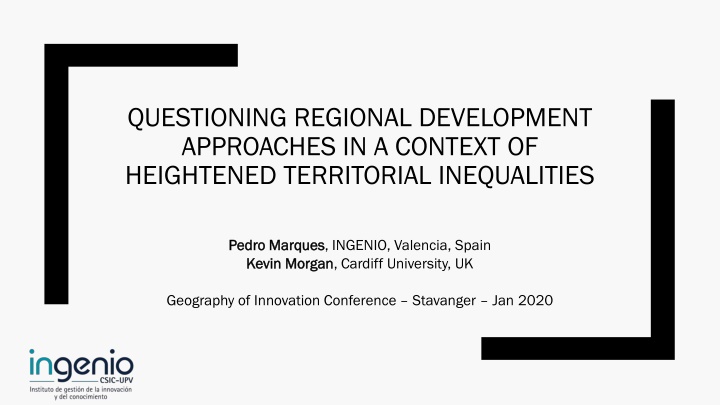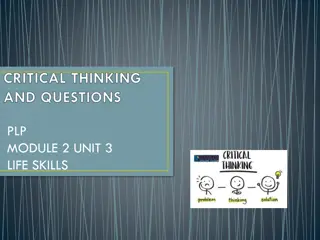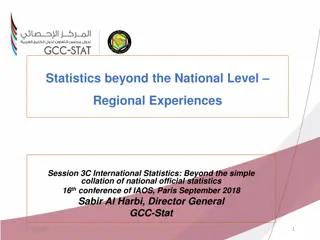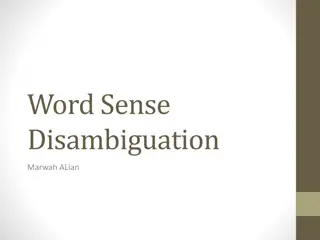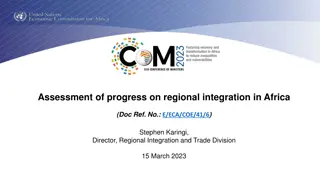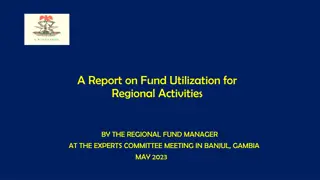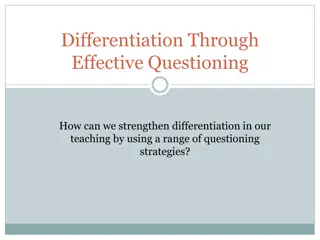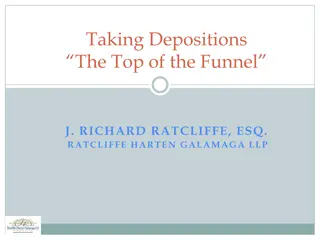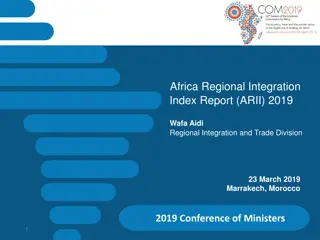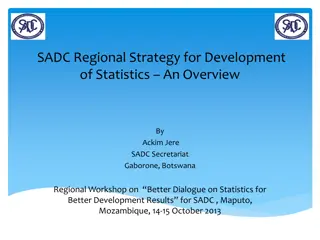Questioning Regional Development Approaches in Context of Heightened Territorial Inequalities
The discussion delves into theories of territorial inequality, challenges of addressing territorial inequalities, and alternative solutions to combat regional disparities. It explores practical and normative rationales as well as drawbacks of existing regional development strategies.
Download Presentation

Please find below an Image/Link to download the presentation.
The content on the website is provided AS IS for your information and personal use only. It may not be sold, licensed, or shared on other websites without obtaining consent from the author.If you encounter any issues during the download, it is possible that the publisher has removed the file from their server.
You are allowed to download the files provided on this website for personal or commercial use, subject to the condition that they are used lawfully. All files are the property of their respective owners.
The content on the website is provided AS IS for your information and personal use only. It may not be sold, licensed, or shared on other websites without obtaining consent from the author.
E N D
Presentation Transcript
QUESTIONING REGIONAL DEVELOPMENT APPROACHES IN A CONTEXT OF HEIGHTENED TERRITORIAL INEQUALITIES Pedro Marques Pedro Marques, INGENIO, Valencia, Spain Kevin Morgan Kevin Morgan, Cardiff University, UK Geography of Innovation Conference Stavanger Jan 2020
Theories of territorial inequality Neoclassical arguments: in the long-term territorial inequalities even out (when we are all dead?) Agglomeration and scale economies justify inequality solution is more agglomeration Marxist arguments: Territorial inequality a structural feature of capitalism solution is a new economic system New regionalism/endogenous growth theory Inequality is the result of untapped potential solution is human capital and technology
But Are territorial inequalities problematic? Decades of regional policy both within national contexts such as the UK, Germany or Italy, and at the European scale, have been mostly insufficient to reverse reverse or, in many cases, even tamper even tamper regional inequalities insufficient to Are there alternative solutions?
Two reasons why territorial inequality matter 1. A practical one: The revenge of the places that don t matter
Two reasons why territorial inequality matter 2. A normative rationale Utilitarian approach: the ultimate aim of development is an increase in total goods produced, irrespective of how they are distributed Social contract approach: the process of growth itself matters - if it relies on raising inequality without benefits for those at the bottom then it is unethical
How to address them? Regional development based on infrastructure has failed to deliver territorial cohesion, as demonstrated by the European experience Softer approaches, both those based on stimulating creativity (Florida 2004) and those based on innovation and firm competitiveness have also failed to stop regional divergence partly due to investments that are not of sufficient scale to generate critical mass in lagging regions, coupled with the pull effect of core regions (Charlot et al 2015) A persistent issue holding back regions is low quality of governance
Bottom-up or top down? Devolution in multi-level governance systems is often misconceived in 2 very different ways In top top- -down down conceptions the lower levels are seen as the worker-bee agents who passively implement the policy designs of higher level principals But there are 2 problems with this conception: the higher level principals don t have the necessary knowledge; and policy implementation is a creative problem-solving activity not a passive execution of higher designs
Bottom-up or top down? But the bottom that local empowerment is sufficient for successful devolution when it isn t Local actors need to learn from what s worked and hasn t worked elsewhere by learning from the pooled experience of actors beyond their locale EG is designed to do that because it is a form of democracy in which the experience of higher levels is corrected by the knowledge of lower levels and vice versa EG and the PBA are conceptions of governance and development that are neither top-down nor bottom-up bottom- - up up conception is equally flawed because it assumes
Foundational economy Household wellbeing depends Household wellbeing depends daily on foundational essentials daily on foundational essentials where interruption of provision = immediate crisis Providential services Providential services like health services and care, universal primary and secondary schooling = the badges of our civilisation Material infrastructure Material infrastructure of pipes and cables connecting households to systems which make everyday life safe, sound and civilised Why the FE matters? wellbeing wellbeing critical for critical for households households
Foundational economy The foundational economy The foundational economy requires a new set of metrics requires a new set of metrics instead of just per capita GDP instead of just per capita GDP - - income measures which do not capture the well being of households in specific places The key metric of foundational The key metric of foundational liveability is liveability is residual household residual household income income (net of housing and net of housing and transport costs) transport costs) Low GVA per capita places can Low GVA per capita places can be liveable for many households be liveable for many households if affordable housing is readily if affordable housing is readily available available A new place A new place- - based agenda? based agenda? its about its about wellbeing wellbeing and new and new metrics metrics
Community wealth building Investing in human skills and partial ownership of homes, commercial properties and businesses Empowering local organisations to create, capture and deploy value for local priorities Improving access to patient and ethical capital Fair and transparent neighbourhood revitalization A USA A USA experience experience revitalisation of revitalisation of distressed distressed urban urban communities communities
Scope of the alternatives Concept Concept Foundational economy Governance Governance challenge Multi-scalar coordination conflicts between local and national goals challenge Scope Scope Up to 40% of regional employment Potential Potential impact Potential to raise living standards; limited prospects for regional transformation + dependence on national level Address disenfranchisement of minorities; create community cohesion impact Community wealth Coordination of public, private and third sector - dependent on philantropic contributions Creation of locally owned small businesses strengthen third sector
Conclusions Territorial inequalities are persistent and problematic - economically, politically and ethically Search for alternative models needs to be realistic about what each can achieve Multi-scalar coordination and governance are likely the biggest challenges: Rather tan regional policy, we need a regional mandate for all policies We are agnostic on agency who does it depends on the context
